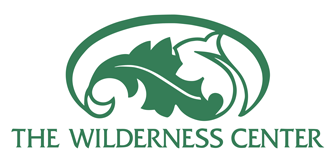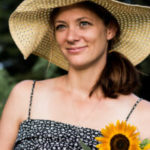Discovering the TWC Ecosystem
Hi. I’m new here. My name is Tiffany, and I’m an artist, a nature lover, a mom, the daughter of a farmer, and the wife of a pharmacist. I’m also a learner. I like to learn about people and relationships. Much in the way that an ecologist studies ecosystems, I like to study organizations. I like to observe them from the outside and take notes about the different roles in an organizational ecosystem. What elements are necessary? Is something missing? How do all these components work together to survive/thrive?
Since coming to The Wilderness Center last month, I’ve observed quite a bit. Like all the most beautiful ecosystems in nature, The Wilderness Center’s ecosystem is complex. I like complexity because it can lead to really big outcomes. TWC’s inner workings feature so many components and the interplay is amazing, confusing, and staggering at times. There’s the Education Team. I like to think of them as the birds. They just love to be out front, sharing their wisdom and knowledge with all of you, singing their beautiful songs about the wonders of nature. There’s the Conservation Team: the strong and steadfast producers of the ecosystem, like trees. Their work means there are trails to walk, habitats to observe, and that we are rooted in a deep respect for the earth. There’s the Administrative and Support Staff. They’re like the abiotic factors in an ecosystem: the weather and climate, the constant, predictable rhythms that keep elements like air and water moving through our little world. Instead of air and water it’s elements like cash flow and communications (although without them, the water and heating bills might not get paid and then we would really be in trouble!) And there’s the Community Engagement Team. Like the important insects and pollinators in a natural ecosystem spreading pollen from flower to flower, this team disseminates information to all of you about the good work that we do and opportunities to get involved.
There is one other important factor that all ecosystems need: a source of energy. Often this is the sun, providing the heat and light for plants to grow, animals to flourish, and weather patterns to cycle. For the TWC ecosystem, this comes from you. Yes, YOU! You inspire us. You motivate us. You give us a reason for being. Our core focus areas — education, conservation and community — all require help from the outside. Without your support, not only do we not thrive; we do not survive!
The way you share your energy and yourself with TWC is up to you. We’re all entering a new era; an era making every industry evaluate the way we do things. So in the past we may have asked you for your dollars and your volunteer time or invited you to special events, but things have changed and we recognize that. Remember, a complex ecosystem can be quite beautiful and produce a great amount life, but it can also be very fragile.
Another attribute of a successful ecosystem is adaptability. We’re waking up to a brave new world: post-lockdown, (hopefully soon) post-Covid, and in a world where values are changing. It’s no longer enough for us to simply take your dollars and spend them as we always have. Now is the time to make sure that what we do aligns with who we are and who you are as well. We want to ask you about your thoughts, your goals, how you want to impact this world, and how you want to impact TWC. What role do YOU (our members, donors, volunteers, followers, visitors, and neighbors) want to play in our future?
We’re heading into a brand new season. Summer is right around the corner. Look for changes along the paths: migrating birds, different species of plants in bloom, new tracks from our animal friends. But also be on the lookout to engage with TWC. We’ll be sending an online survey to all of our members via email and we’ll be starting community conversations soon.
In the meantime, I can’t wait to meet more of you as our programs begin again and as you visit our main site in Wilmot. Don’t be afraid to drop me an email (tiffany@wildernesscenter.org) or give me a call 330-359-5235. I always enjoy learning more about our TWC Ecosystem and especially about where we get our energy!

